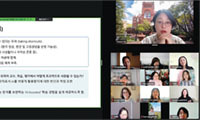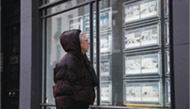Marooned on a Sea of Oil, but Unable to Tap Wealth
BASRA, Iraq - The orange glow of the giant natural gas flares in the oil fields around Basra represents this bustling city’s wealth of natural resources. But for the impoverished people who live near them, the flames only serve as a reminder of their inability to share in the riches that lie beneath their feet.
The area around Basra, Iraq’s second largest city and main port, accounts for as much as 80 percent of the country’s oil production. It has emerged as Iraq’s best hope for stability and prosperity as it prepares to sell off its top undeveloped oil fields to foreign companies at an auction next month. Of the five largest fields that will be bid on, four are in or around Basra.
Despite the riches trapped below its oil fields, though, this city of three million is among Iraq’s poorest places.
People in neighborhoods within a few kilometers of fields with so much oil that it floats atop the surface in huge black pools live amid mud and feces. Carts pulled by overworked donkeys compete with cars for space on streets. Childhood cancer rates are the highest in the country. The city’s salty tap water makes people ill. And there is more garbage on the streets than municipal collectors can carry away.
The hundreds of thousands who live in the villages around the fields all dream of finding oil work, but that is unlikely. Those who apply are almost always told they lack the education or experience for oil work. But they believe that their only real deficiency is a lack of connections and money for bribes.
“People sit here in the evenings and they watch the flames and wonder how rich they would be if they had only one hour of those oil exports,” said Naeem al-Moussuawi, who lives in one of the poorer villages in the Basra area.
Last month, after Iraq’s Oil Ministry announced that it planned to hire workers for its Basra-based South Oil Company, thousands of people waited in line for applications - some for days. Among them were men in tattered clothing with bare, muddy feet. When the line got unruly, the police were called. Some applicants were beaten. More than 27,000 applications were filled out for 1,600 jobs - most of which require a college education or experience, and most Basrans have neither.
In the village of Asdika, oil pipelines run along the perimeter, and several thousand people live in ramshackle houses of gray cinder blocks and plastic sheeting for roofs.
There is no garbage collection, and household trash is thrown outside to rot in the sun. There is no sewer system, so wastewater from houses is dumped outside, attracting thousands of flies to the lakes of raw sewage that have formed outside most homes. Almost everyone is unemployed.
The village is on government property - an oil field - and its existence is illegal. Residents say the police show up occasionally and threaten to bulldoze the houses.
Hussein Flaeh, 29, an unemployed father of two, has lived in Asdika since 2003. Fifteen members of his family live in a concrete-block house with three small rooms. One recent morning, Mr. Flaeh’s youngest child, Essam, born two weeks ago, was placed outside to get some fresh air. The baby’s face was almost immediately covered by hungry flies.
Asked whether he had ever applied for a job at the oil refinery, Mr. Flaeh appeared perplexed and did not answer. Pressed, his gentle face turned hard.
“You can’t even reach it,” he said. “Don’t even talk about it.”
Government officials in Basra have called for a fee of $1 on each barrel of oil produced in the province, which would then be used for local projects . But even if Basra suddenly became awash in oil money, the construction of new housing, offices and even farmland would be prohibited because almost everything is situated atop untapped reserves of crude oil.
“Ninety percent of Basra is an oil field,” said Ahmed al-Sulati, a member of the local provincial council. “We can’t build anything here. We need to have more housing in some neighborhoods, but we can’t because we are surrounded by oil.”
In the meantime, Mr. Sulati said, “We are getting sick from breathing gas, and the streets are getting destroyed by the oil trucks.”
Poverty is rampant in Basra, Iraq, despite its large oil reserves. Thousands of villagers have applied for jobs in the fields, but most do not have the education or experince to work there. / JOAO SILVA FOR THE NEW YORK TIMES
스마터리빙
more [ 건강]
[ 건강]이제 혈관 건강도 챙기자!
[현대해운]우리 눈에 보이지 않기 때문에 혈관 건강을 챙기는 것은 결코 쉽지 않은데요. 여러분은 혈관 건강을 유지하기 위해 어떤 노력을 하시나요?
 [ 건강]
[ 건강]내 몸이 건강해지는 과일궁합
 [ 라이프]
[ 라이프]벌레야 물럿거라! 천연 해충제 만들기
 [ 건강]
[ 건강]혈압 낮추는데 좋은 식품
[현대해운]혈관 건강은 주로 노화가 진행되면서 지켜야 할 문제라고 인식되어 왔습니다. 최근 생활 패턴과 식생활의 변화로 혈관의 노화 진행이 빨라지고
사람·사람들
more많이 본 기사
- 남가주 전역에 ‘물폭탄’… 성탄 연휴 ‘대혼란’
- [2025년 한 해 ‘진 별’들] 미주 한인사회 원로들 ‘역사의 뒤안길’로
- 체포 불체자 수만명 물류창고에 수감 추진
- 우크라이나도 “Merry Christmas!”… 지구촌 성탄 축하
- 크리스마스 연휴 음주운전 ‘꼼짝마’
- 트럼프 ‘전쟁할 결심’?… 미군 특수부대 카리브해 이동
- 여성 살해·자녀 납치 한인 ‘수배’
- 한인타운 한복판 주유소서 강도 ‘칼부림’
- “소변 불편한데 주저하다 방광 망가져”
- H-1B ‘10만 달러 수수료’ 연방법원, 이의소송 기각
- 새해 더 건강해지기 위한 의사의 과학적 조언 10가지
- 선우용여 “아들, 돈 없어 개밥 먹기도..아파트 마련해줬다”
- “대학 학자금 상환 안하면 임금 압류한다”
- 난방기 뜯자 ‘비밀공간’ 은신 마피아 보스 체포
- ‘라스베가스에서 만난 한인들’
- 한인들 위한 무료 법률 상담회 개최
- CBS가 보류한 ‘불법체류자 추방’ 보도, 캐나다서 원본 유출
- 뚜레쥬르, 뉴욕시 맨해튼 매장 오픈
- 바야흐로 ‘귀금속 시대’… 금·은·구리까지 사상 최고
- 샌프란시스코, 한국 방문해 이정후와 함께 야구 클리닉
- 원·달러 환율, 당국 개입에 42원 폭락
- 테슬라, “비상사태 시 차문 안 열려”
- [성탄절 앞둔 우울한 경제상황] ‘내 코가 석자’… 기부 급감
- [전문의 칼럼] 과호흡증후군
- 여성 살해·자녀 납치 한인 ‘수배’
- 최준희, 엄마 故최진실 생일 맞아 추억 “우리 마미 축하”
- 피클볼이 바꾸는 부동산의 얼굴
- 북가주 한인 독립운동가 ‘이대위의 날’ 제정 추진
- [스티브 강 ‘인사이드 미국’] 2026 중간선거: 트럼프 지지율 하락이 말해주는 것
- 최강팀 OKC 천적으로 떠오른 샌안토니오… 4패 중 2패 안겨
- 미·중 무역전쟁 휴전 지속… 반도체 관세도 보류
- 2026년 ‘올해의 컬러’ 전격 공개… 팬톤의 파격적 선택도 포함
- 서태지, 딸·엘리와 1년 만에 근황 “좋은 소식 없어 안타까워”
- 한국외대·연세대·한양대 GCEO 연합골프대회 성황
- [유혜미 칼럼] 치솟는 환율, 경제 지표의 역설
- [만화경] 해수부 부산시대
- 쿡, 나이키 주식 매입 2005년부터 사외이사
- LA 마약조직 집중 단속 갱단원 등 수백명 체포
- 다운타운 LA 라이브에 등장한 아이스링크
- [성탄절 앞둔 우울한 경제상황] 연말 선물로 중고품 급증
- 북한인, 아마존 위장취업 대거 적발
- 글로벌미션 체임버오케스트라 자선 공연
- [윌셔에서] 우리 안의 ‘생각하는 사람’을 깨울 시간
- 오헌, 샌디에고 떠나 피츠버그와 입단 합의… 송성문에겐 기회
- [팜스 카지노 리조트] “새해 맞이는 팜스에서… 푸짐한 행사들과 특별요리”
- [기고] 안정의 기준은 어떻게 제도가 되었나
- 중산층이 집을 사지 않는다?… 챗GPT가 내다본 주택시장 미래
- 가주태권도협 이취임식
- [왈가 왈부] 내란재판부·정통망법 또 수정… 졸속·땜질 아닌가요
- 팔레스타인서 구금된 한인 여성 무사 귀환
1/5지식톡

-
 미 육군 사관학교 West Poin…
0
미 육군 사관학교 West Poin…
0https://youtu.be/SxD8cEhNV6Q연락처:wpkapca@gmail.comJohn Choi: 714-716-6414West Point 합격증을 받으셨나요?미 육군사관학교 West Point 학부모 모…
-
 ☝️해외에서도 가능한 한국어 선생님…
0
☝️해외에서도 가능한 한국어 선생님…
0이 영상 하나면 충분합니다!♥️상담신청문의♥️☝️ 문의 폭주로 '선착순 상담'만 진행합니다.☎️ : 02-6213-9094✨카카오톡ID : @GOODEDU77 (@골뱅이 꼭 붙여주셔야합니다…
-
 테슬라 자동차 시트커버 장착
0
테슬라 자동차 시트커버 장착
0테슬라 시트커버, 사놓고 아직 못 씌우셨죠?장착이 생각보다 쉽지 않습니다.20년 경력 전문가에게 맡기세요 — 깔끔하고 딱 맞게 장착해드립니다!장착비용:앞좌석: $40뒷좌석: $60앞·뒷좌석 …
-
 식당용 부탄가스
0
식당용 부탄가스
0식당용 부탄가스 홀세일 합니다 로스앤젤레스 다운타운 픽업 가능 안녕 하세요?강아지 & 고양이 모든 애완동물 / 반려동물 식품 & 모든 애완동물/반려동물 관련 제품들 전문적으로 홀세일/취급하는 회사 입니다 100% …
-
 ACSL 국제 컴퓨터 과학 대회, …
0
ACSL 국제 컴퓨터 과학 대회, …
0웹사이트 : www.eduspot.co.kr 카카오톡 상담하기 : https://pf.kakao.com/_BEQWxb블로그 : https://blog.naver.com/eduspotmain안녕하세요, 에듀스팟입니다…
케이타운 1번가
오피니언
 스티브 강 전 한인민주당협회 회장
스티브 강 전 한인민주당협회 회장 [스티브 강 ‘인사이드 미국’] 2026 중간선거: 트럼프 지지율 하락이 말해주는 것
 김홍일 케이유니콘인베스트먼트 대표
김홍일 케이유니콘인베스트먼트 대표 [기고] 안정의 기준은 어떻게 제도가 되었나
 유혜미 한양대 경제금융대학 교수
유혜미 한양대 경제금융대학 교수 [유혜미 칼럼] 치솟는 환율, 경제 지표의 역설
 성민희 소설·수필가
성민희 소설·수필가 [윌셔에서] 우리 안의 ‘생각하는 사람’을 깨울 시간
 김정곤 / 서울경제 논설위원
김정곤 / 서울경제 논설위원 [만화경] 해수부 부산시대

[왈가 왈부] 내란재판부·정통망법 또 수정… 졸속·땜질 아닌가요
 정숙희 논설위원
정숙희 논설위원온라인쇼핑과 반품, 그리고 그 이후
 파리드 자카리아 / 워싱턴포스트 칼럼니스트 / CNN ‘GPS’ 호스트
파리드 자카리아 / 워싱턴포스트 칼럼니스트 / CNN ‘GPS’ 호스트 트럼프의 새 독트린 “미국을 다시 왜소하게”
 김동찬 시민참여센터 대표
김동찬 시민참여센터 대표 [미국은 지금] MAGA의 분열, 예견된 균열의 시작
1/3지사별 뉴스

“온 세상에 평화를⋯”
숨가쁘게 달려온 2025년을 이제 1주일 남짓 남긴 채 크리스마스 이브를 맞는다. 다사다난했던 한 해를 되돌아보며 마무리하는 연말 시즌과 크리…
H-1B비자 고임금·경력자에 우선권

‘올해는 ICE 이민자 체포 광풍의 해’
올 한해동안 버지니아와 메릴랜드, DC 등에서 연방 이민당국에 체포된 사람이 1만명이 훌쩍 넘는 것으로 조사됐다. 또 미 전국적으로는 22만명…
“ATM기 사용하기 겁나네”

한인들 위한 무료 법률 상담회 개최
샌프란시스코 베이지역 한인회(회장 김한일)는 지난 20일 한인회관에서 북가주 지역 한인들을 위한 무료 법률 상담회를 개최했다. 이날 행사에는 …
여성 살해·자녀 납치 한인 ‘수배’

오늘 하루 이 창 열지 않음 닫기 






















































.png)


댓글 안에 당신의 성숙함도 담아 주세요.
'오늘의 한마디'는 기사에 대하여 자신의 생각을 말하고 남의 생각을 들으며 서로 다양한 의견을 나누는 공간입니다. 그러나 간혹 불건전한 내용을 올리시는 분들이 계셔서 건전한 인터넷문화 정착을 위해 아래와 같은 운영원칙을 적용합니다.
자체 모니터링을 통해 아래에 해당하는 내용이 포함된 댓글이 발견되면 예고없이 삭제 조치를 하겠습니다.
불건전한 댓글을 올리거나, 이름에 비속어 및 상대방의 불쾌감을 주는 단어를 사용, 유명인 또는 특정 일반인을 사칭하는 경우 이용에 대한 차단 제재를 받을 수 있습니다. 차단될 경우, 일주일간 댓글을 달수 없게 됩니다.
명예훼손, 개인정보 유출, 욕설 등 법률에 위반되는 댓글은 관계 법령에 의거 민형사상 처벌을 받을 수 있으니 이용에 주의를 부탁드립니다.
Close
x